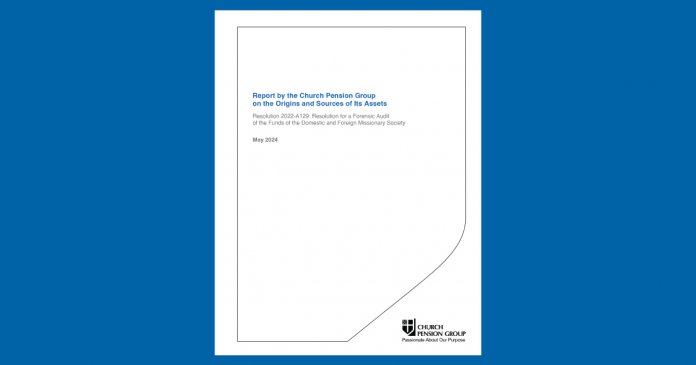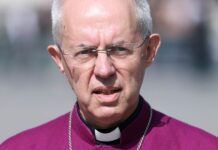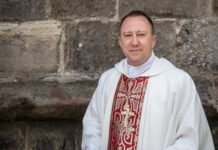The Church Pension Group (CPG), a financial services organization that serves The Episcopal Church, released a report on the origins and sources of its assets (cpg.org/A129). The report was developed in response to Resolution 2022-A129: Resolution for a Forensic Audit of the Funds of the Domestic and Foreign Missionary Society from the 80th General Convention of The Episcopal Church.
In an effort to understand historical financial connections to the enslavement of humans, the slave trade, and racial injustice, Resolution 2022-A129 urged CPG to research the sources of wealth of the donors to The Church Pension Fund (CPF), which was founded in 1917, and share the results of our historical research.
Patricia Favreau, Executive Vice President and Chief Communications Officer of CPG, who led efforts around the research and development of the report, commented, “While our research did not reveal direct ties between The Church Pension Fund’s top donors and the institution of slavery, we acknowledge that wealth accumulation for much of the 19th century cannot be separated from the economics of enslavement. We decided to take a deeper look and share any indirect legacy connections that we uncovered, and we found a few.”
Mary Kate Wold, CEO and President of CPG, said, “We were glad to undertake this research. We want to be transparent about the history of The Church Pension Fund, which is worthy of study. It is my hope that readers also will focus on what CPG is doing in the present to address the long tails of racial discrimination.”
CPG’s Approach to This Study
To respond to Resolution 2022-A129, CPG reviewed historical records in its possession, consulted publicly available resources, solicited input from its Research & Data team, read biographies of its most famous original funders, read other books of history from relevant time periods, and engaged an outside researcher who specializes in late 19th and early 20th century US history.
The full report can be found at cpg.org/A129.



